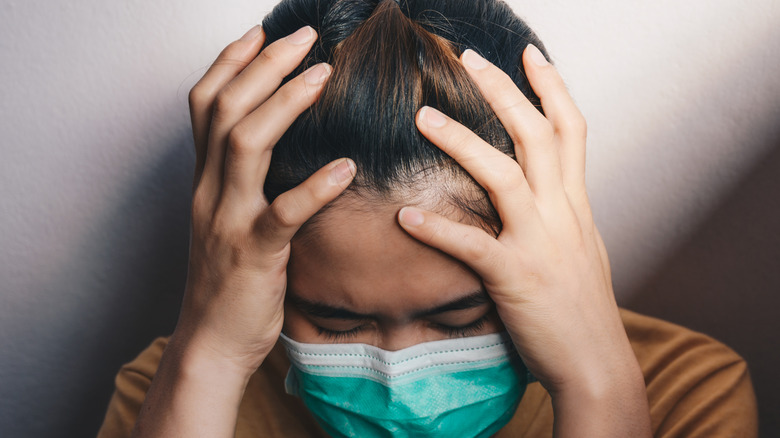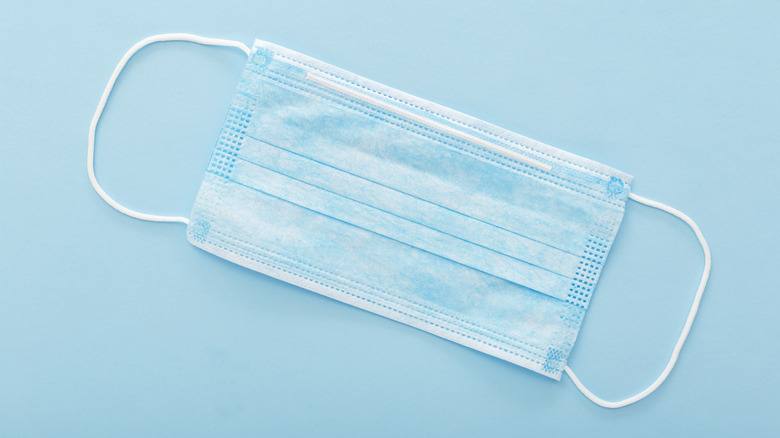Why Wearing A Mask Can Increase Your Risk Of Getting A Headache
Most of us are used to wearing a face mask by now, but some of us have to wear one more frequently depending on location and occupation. Mask wearing can be unpleasant for any number of reasons, including its tendency to cause acne, per the Cleveland Clinic. Another side effect of wearing a mask is an increased risk of headaches.
Experiencing a headache while wearing a mask isn't uncommon. In fact, in a 2020 study published in the Journal of Infectious Diseases and Epidemiology, researchers looked at the most common side effects reported by healthcare professionals operating the COVID-19 frontline. They found that 71.4% of respondents suffered from headaches, which began as quickly as one hour or less after putting on a mask. Most of the survey respondents did not have a prior history of frequent headaches, although the researchers were careful to point out that the headaches weren't necessarily tied to wearing masks. Other potential factors were fatigue, stress, and neck and shoulder tension.
Ctrl M Health explains why masks can lead to headaches. The first reason is that the loops securing the mask behind the ears can press on nerves, leading to an achy sensation over time. The mask itself may also fit tightly around the nose, pushing against sensitive nerves and blood vessels that extend around the head, causing inflammation. If a face shield is worn in addition to a mask or instead of one, its position at the temples can also cause a compression headache.
How to reduce headaches while wearing a mask
If you are experiencing mask-induced headaches, you can rest assured that there are ways to reduce their frequency without having to forgo the protection that a mask provides.
Practical Pain Management discussed the issue with integrative pain management specialist Lillie Rosenthal, who gave a few pointers when it comes to avoiding headaches. She advises mask wearers to ensure they are staying hydrated, as dehydration can contribute to headaches. A mask can also serve as a barrier, leading people to unconsciously drink less over the course of the day. Masks also increase the potential to sweat more due to overheating, creating the perfect recipe for dehydration-related headaches. Rosenthal recommends keeping a water bottle nearby and taking frequent drink breaks.
Rosenthal also points out that the physical positioning of our head, neck, and upper body can lead to headaches by increasing mechanical burden, creating neck strain (via Practical Pain Management). It's important to avoid putting stress on the cervical spine by not leaning the head and neck forward for extended periods of time. Other ways to reduce and treat mask-related headaches include engaging in deep breathing exercises, placing peppermint oil on the temples, allowing plenty of natural and fresh air flow in the location you're in, and massaging the scalp, neck, and shoulders. Minimizing your stress, in general, can also go a long way in minimizing the likelihood of developing a mask-related headache.


